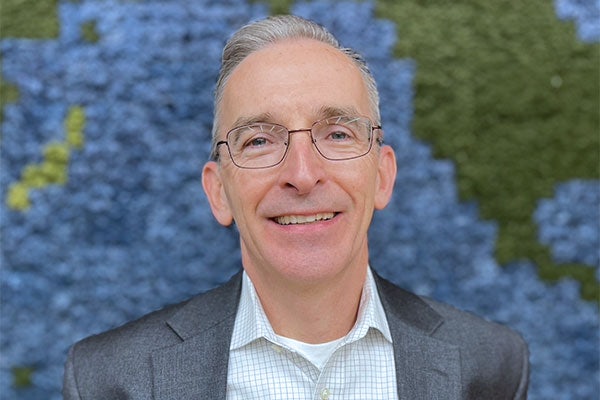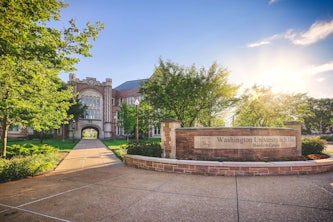Wilson receives 2020 EECE Distinguished Alumni Award
Gregory Wilson, who earned master’s and doctoral degrees in chemical engineering, was honored for his innovative work in the renewable energies field

Gregory Wilson has spent much of his career trying to solve one of the biggest problems facing the world today: climate change. As the vice president for Science and Advanced Technologies at JERA Americas, he is responsible for assessing decarbonization technologies and developing those deemed commercially viable into projects aimed at decarbonizing bulk power generation.
Decarbonization is the removal of fossil fuels and other carbon-derived fuels from a society’s energy system.
“I've been motivated by the challenges of decarbonization for many years, and I'm a little bit obsessed with it,” Wilson said. “Even when I'm bummed out because it's so hard, I can always get back up to speed because it is such an important problem.”
For his leadership and innovation in the area of renewable energy and semiconductors, Wilson recently received the 2020 EECE Distinguished Alumni Award from the Department of Energy, Environmental & Chemical Engineering at the McKelvey School of Engineering at Washington University in St. Louis.
“Greg Wilson has had a phenomenal career in renewable energy, developing innovations for decarbonization,” said Joshua Yuan, the Lucy & Stanley Lopata Professor and department chair. “I'm grateful for everything he has done for the department and the example he has served for our students and alumni. He more than deserves to be recognized among EECE's distinguished alumni.”
His journey from semiconductors to renewables has been a bit serendipitous. Wilson earned master’s and doctoral degrees in chemical engineering from the engineering school at WashU in 1991 and 1993, respectively, and focused much of his graduate studies researching stability theory in the lab of Bamin Khomami, the former Francis F. Ahmann Professor of Chemical Engineering.
“I got really interested in climate and atmospheric modeling because, in the early days, stability theory wasn’t taken into account,” Wilson said. “I was fascinated with climate change and got into it as an amateur.”
Wilson would go on to lead research and development groups for the former Monsanto Electric Materials Co. (MEMC), which is now owned by GlobalWafers. While there, he worked closely with many experts in the field of light emitting diodes (LED). The mechanics behind LEDs are similar to those in photovoltaic cells, which are used in devices such as solar panels, and MEMC sold silicon to the emerging photovoltaic industry.
“I entered photovoltaics because I knew the silicon supply chain,” Wilson said. “I knew how photovoltaic devices worked because the person who hired me taught me how light emitting diodes worked. I was able to leverage my semiconductor physics and silicon materials experience at MEMC to move on to the position I held at the National Renewable Energy Laboratory.”
Wilson continues his work with WashU as a member of the EECE Executive Advisory Board, helping to lead the department.
“I owe a great deal to the chemical engineering faculty who taught me so much during my years as a graduate student at WashU, and I was especially pleased that my doctoral adviser, Bamin Khomami, was there for the ceremony,” Wilson said. “Excluding Bamin, the faculty that taught me have all retired, and two sadly have passed away. It was an honor that the current EECE faculty chose to recognize my work.”
The Department of Energy, Environmental & Chemical Engineering honors alumni each year with the EECE Distinguished Alumni Award. Faculty recently hosted the first award ceremony since the COVID-19 pandemic, where they honored the 2020, 2021 and 2022 award recipients.



